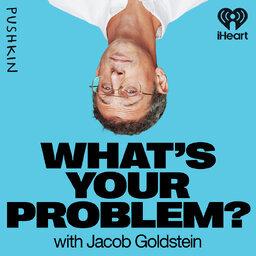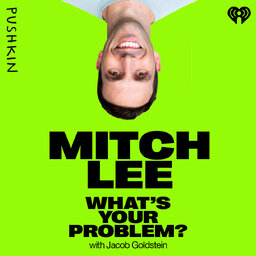Saving the World with Poop
Mariana Matus is co-founder and CEO of Biobot Analytics. Her problem: How do you turn sewage into useful public health data?
When she and her co-founder launched the company, wastewater epidemiology was a niche field nobody paid much attention to. The Covid pandemic changed that. Studying wastewater has become one of the most important tools for tracking the pandemic. And Mariana's company, Biobot Analytics, has become a global leader in the field, with tens of millions of dollars in annual revenue.
If you’d like to keep up with the most recent news from this and other Pushkin podcasts be sure to subscribe to our email list.
 What's Your Problem?
What's Your Problem?


